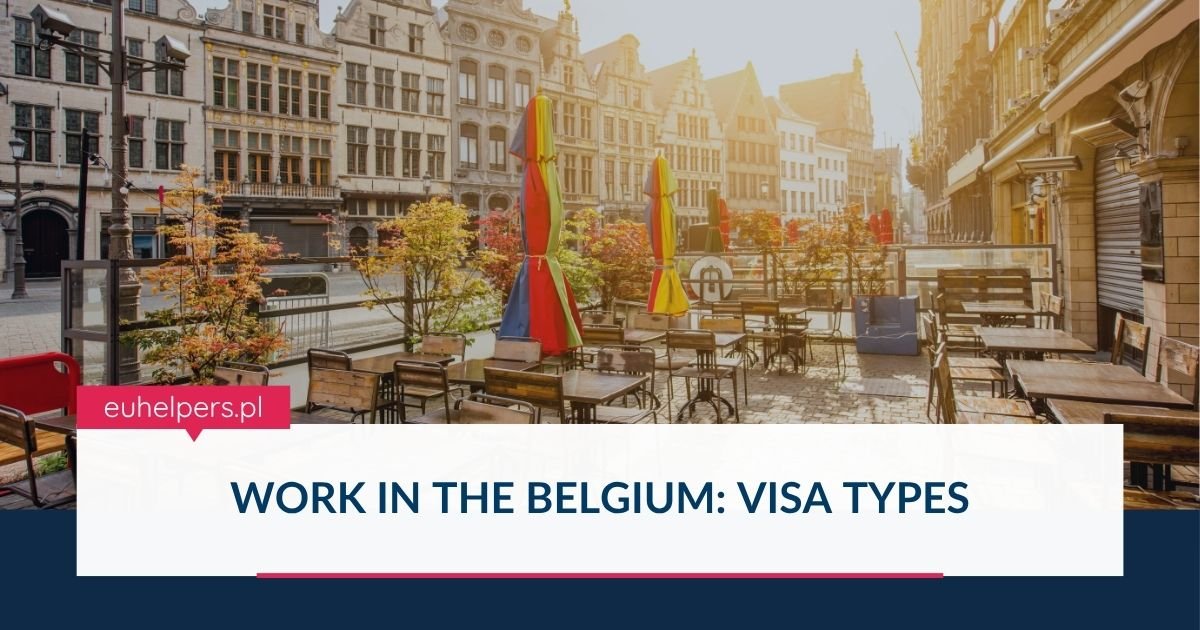Belgium offers a structured and multi-tiered visa and permit system to facilitate foreign nationals seeking employment or business opportunities within the country. Whether you're a skilled professional, a temporary worker, or an entrepreneur, understanding the available visa types is essential for planning a move to Belgium. Here's a comprehensive guide to Belgium’s key work-related visas and permits.
1. Long-Stay Visa (Type D)
Purpose:
This visa is designed for non-EU/EEA nationals planning to live and work in Belgium for more than 90 days.
Application Process:
Before applying for the visa, your prospective employer must obtain a Single Permit (a combined work and residence authorization) on your behalf. Once the Single Permit is approved, you can submit a Type D visa application at a Belgian embassy or consulate in your home country.
Next Steps After Arrival:
Upon arrival in Belgium, it’s mandatory to register at your local municipal office (town hall). You will be issued a Belgian residence card (electronic ID or eID), which also serves as proof of your right to work in the country.
2. Types of Work Permits
Belgium distinguishes between three main types of work permits, each with specific eligibility criteria:
Type A Work Permit
-
Scope: Unlimited employment with any Belgian employer in any job sector.
-
Eligibility: Granted only to individuals who have worked in Belgium under a Type B permit for at least four years within a ten-year period.
Type B Work Permit
-
Scope: The most common permit for foreign workers. It allows employment for a specific job with a designated employer.
-
Validity: Typically issued for one year and renewable.
-
Application: The employer must apply on behalf of the employee.
Type C Work Permit
-
Scope: Designed for individuals staying temporarily in Belgium—such as students, asylum seekers, or family members—who wish to take up employment.
-
Validity: Valid for one year and can be renewed based on circumstances.
3. Other Work Visas and Permits
Single Permit
A streamlined document that serves both as a residence and work permit. It applies to both temporary and long-term employment, simplifying the process for most non-EU workers.
European Blue Card
Tailored for highly qualified non-EU nationals, the Blue Card offers residency and work rights across the EU. Applicants must meet specific educational and salary requirements and have a valid job offer in Belgium.
Professional Card
This permit is intended for self-employed foreigners who want to start or run a business in Belgium. Applicants must demonstrate the viability and benefit of their business plan to the Belgian economy.
4. Schengen Visa (Type C)
Purpose:
The Schengen Visa permits short stays of up to 90 days within a 180-day period for tourism, family visits, business trips, or attending short-term events or training.
Important Note:
This visa does not grant the right to work or seek employment in Belgium.
Whether you’re aiming for a long-term professional opportunity, starting a business, or just planning a short visit, Belgium offers a range of visas and permits tailored to different needs. It is crucial to choose the correct pathway and ensure that both employer and applicant follow the legal requirements for a successful relocation.

